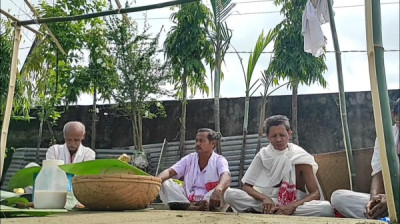What Is The Meaning And Cultural Significance Of Tiloni In Assamese Tradition?



It is part of the broader cremation rituals and is followed by "Doha" on the ninth day.
The word Tiloni comes from “tini” (three), symbolizing the third day.
It is a post-death ritual, performed to purify the surroundings and pray for the soul of the deceased.
Family members and relatives gather on the third day after death.
A priest (or family elder) conducts rituals with offerings, prayers, and symbolic purification.
Clothes, beddings, and items used by the deceased may be washed or discarded as part of the ritual.
Food is sometimes prepared and offered in the memory of the departed.
It is believed that by the third day, the soul begins its spiritual journey, and Tiloni helps in ensuring peace and purity.
The ritual also provides a collective mourning period for the family and community.
Cleanses the house and family members after the mourning period.
Helps relatives and neighbors offer condolences and prayers together.
Maintains cultural continuity and respect for ancestors.
In Assamese tradition, Tiloni is an essential post-death ritual observed on the third day after a person’s passing. It symbolizes purification, prayer, and the cultural belief in guiding the soul toward peace.